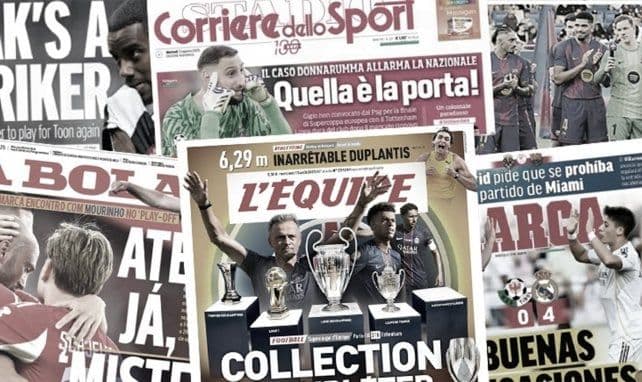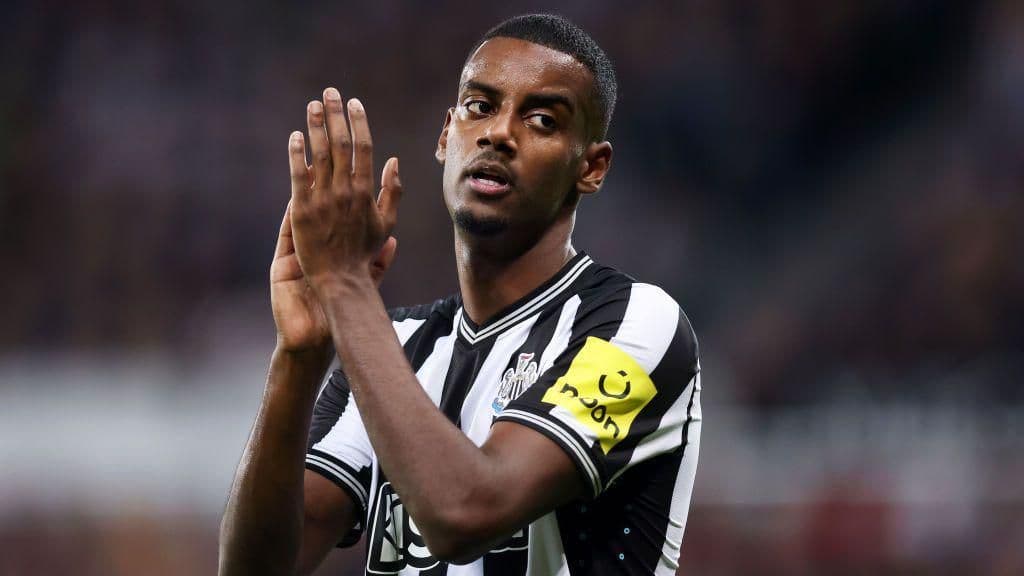Beyond the Pitch: Jackson's Gambit and the Shifting Sands of Football Transfers
Nicolas Jackson's stunning refusal to return to Chelsea ignites a dramatic transfer crisis. Unpack his bold Bayern bid, Chelsea's urgent striker hunt, and player power's evolving role.

The Munich Standoff: A Deadline Day Crisis Unfolds
The final hours of the transfer window are typically fraught with last-minute deals and frantic negotiations, but seldom do they witness a drama quite like the one unfolding with Nicolas Jackson. As the clock ticked down, found themselves in an unprecedented bind. The Senegalese striker was already in Munich, poised to undergo a medical examination, having seemingly agreed to a season-long loan move to for a reported €15 million, with an €80 million non-mandatory buy option. This arrangement, designed to give Jackson playing time given the arrivals of João Pedro and the presence of Liam Delap, suddenly unraveled. A cruel twist of fate struck in the 12th minute of Chelsea's 2-0 victory over Fulham, when Liam Delap suffered a severe hamstring injury. The immediate need for a striker back at Stamford Bridge prompted Chelsea's sporting management to make a swift, dramatic decision: they rescinded the loan agreement with Bayern. This sudden reversal, occurring while Jackson was literally en route to his medical, plunged all parties into a chaotic, high-stakes standoff on what was supposed to be a quiet end to a complex transfer period for the player.

Jackson's Bold Gambit: Ambition, Agent, and the Bayern Lure
Chelsea's abrupt decision to recall Nicolas Jackson, though understandable from their perspective, was met with a defiant refusal from the player and his camp. This wasn't merely a disagreement; it was a public declaration of intent, signaling a significant shift in player agency. Diomansy Kamara, Jackson's agent, wasted no time in making their stance clear, posting a provocative message on Instagram: "The plane is not coming back... Munich." This bold gambit highlights a player's ambition clashing head-on with club obligations, amplified by an agent unafraid to leverage social media. For Jackson, the allure of Bayern Munich, a perennial Champions League contender, likely represented a clearer pathway to top-tier football than a potentially crowded forward line at Chelsea, even with Delap's injury. His refusal to return suggests a deep-seated desire to control his own destiny, challenging the traditional power dynamic where clubs dictate a player's immediate future. This act of rebellion, especially on deadline day, underscores the growing influence of individual players and their representatives in shaping the transfer landscape.
Chelsea's Urgent Hunt: Rebuilding a Striker Strategy on the Fly
The ripple effects of Nicolas Jackson's refusal sent shockwaves through Chelsea's transfer operations, forcing an immediate and frantic pivot. The initial plan, which involved loaning out Jackson after Christopher Nkunku's move to Milan and relying on João Pedro and Liam Delap, had been meticulously crafted. However, Delap's hamstring injury, occurring just as Jackson was about to finalize his move to Bayern, created an unexpected void. Now, with Jackson refusing to return and the transfer window rapidly closing, Chelsea faced the unenviable task of rebuilding their striker strategy on the fly. Reports from outlets like The Athletic confirmed the club's urgent hunt for a new forward, with names like Marc Guiu reportedly being considered as a last-minute acquisition. This sudden scramble not only exposed the fragility of their pre-planned squad arrangements but also put immense pressure on the club's sporting directors to find a suitable, available, and willing player within hours. The financial implications of such rushed, deadline-day decisions can be substantial, often leading to inflated prices or less-than-ideal compromises, further compounding Chelsea's unexpected crisis.
Navigating the Uncharted: Bayern's Role in a Player Rebellion
Bayern Munich, initially the eager recipient of Nicolas Jackson's services, found themselves in an unforeseen and delicate predicament. They had secured a full agreement with Chelsea for a loan deal, with Jackson already en route for his medical, only for the rug to be pulled out from under them due to Chelsea's unforeseen injury crisis. Now, with Jackson refusing to return to London, Bayern is caught between a rock and a hard place. Sporting Director Max Eberl's public statement reflected this tightrope walk: "I am not in a position to act. We will tell the player and his agent that they must return to London; he is a Chelsea player." Yet, his admission that they had been "trying to find a solution" for 48 hours hinted at behind-the-scenes attempts to navigate this unprecedented player rebellion. Bayern's challenge lies in maintaining professional decorum and respecting Chelsea's contractual rights while simultaneously being aware of a highly-rated player's strong desire to join them. Their handling of this situation could set a precedent for how top clubs engage with players who publicly defy their parent clubs, adding another layer of complexity to an already volatile transfer market.
The Echoes of Discontent: Player Power and the Future of Transfers
Nicolas Jackson's public refusal to rejoin Chelsea is more than just a deadline-day anomaly; it's a potent symbol of the ever-increasing power wielded by individual players and their agents in modern football. This incident challenges the very notion of contract sanctity and traditional club loyalty, suggesting that player ambition, often fueled by agent influence, can override established agreements. The public nature of Diomansy Kamara's Instagram post and Jackson's continued defiance sends a clear message: players are increasingly willing to push boundaries to secure moves they believe are best for their careers, even if it means creating significant friction. This trend forces clubs to reconsider their strategies, perhaps leading to stricter loan clauses or more comprehensive pre-contract agreements. Will we see more instances of players refusing to return or demanding moves, emboldened by such precedents? This episode serves as a stark reminder that the transfer market is a dynamic ecosystem, constantly reshaped by shifting power dynamics. It leaves us pondering the long-term implications for club control, player autonomy, and the ethical considerations that underpin every multi-million-euro transaction in the beautiful game.
Related Articles

The Unraveling Threads: Donnarumma's PSG Exit and the Cost of Club-Player Strife

The Unraveling Threads: Donnarumma's PSG Exit and the Cost of Club-Player Strife

The £150 Million Paradox: Isak's Sidelined Ambition and Newcastle's Summer Crucible

The £150 Million Paradox: Isak's Sidelined Ambition and Newcastle's Summer Crucible

The Guéhi Conundrum: Palace's Unyielding Grip Amidst Premier League Giants' Pursuit

The Guéhi Conundrum: Palace's Unyielding Grip Amidst Premier League Giants' Pursuit

Adjetey's Unstoppable Trajectory: Why Europe's Giants Are Scrambling for Basel's Defensive Diamond
